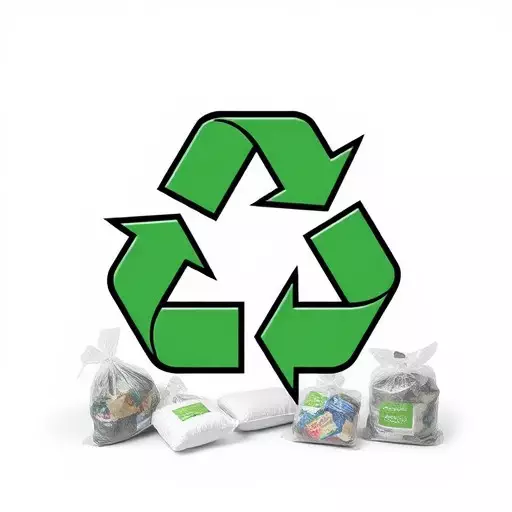In Toledo, adhering to Ohio Department of Transportation (ODOT) approved recycling materials for highway projects is vital. ODOT sets strict guidelines, accepting specific plastics, metals, and concrete with defined collection and processing protocols, offering substantial environmental benefits like waste reduction, natural resource conservation, and energy savings. This promotes a circular economy, enhances job growth, and aligns with sustainability goals, regulatory compliance, and cost savings for contractors and transportation authorities. Using recycled materials in highways reduces demand for new resources, minimizes landfill waste, preserves natural habitats, cuts greenhouse gas emissions, and provides durable, cost-effective solutions.
In an era focused on sustainability, comprehensive recycling solutions are transforming transportation infrastructure. This article explores how Ohio’s approach, guided by ODOT-approved recycling materials in Toledo and their stringent recycling standards, is setting a benchmark. From understanding specific odot-approved materials to implementing eco-friendly practices, we delve into the essential recycling components for highway projects. Discover the profound impact and benefits of these solutions, shaping a greener future for transportation.
- Understanding ODOT-Approved Recycling Materials in Toledo
- Adhering to Ohio Department of Transportation (ODOT) Recycling Standards
- Essential Recycling Materials for Highway Projects
- The Impact and Benefits of Comprehensive Recycling Solutions
- Implementing Eco-Friendly Practices in Transportation Infrastructure Development
Understanding ODOT-Approved Recycling Materials in Toledo

In Toledo, understanding ODOT-approved recycling materials is key to implementing comprehensive transportation solutions. The Ohio Department of Transportation (ODOT) sets strict recycling standards for highway projects, ensuring that only specific materials are accepted. These include a range of plastics, metals, and concrete, each with its own collection and processing protocols. By adhering to these guidelines, contractors and local authorities can contribute to sustainable practices while also meeting regulatory requirements.
The adoption of ODOT-approved recycling materials offers significant environmental benefits for the community. It reduces waste sent to landfills, conserves natural resources, and minimizes the energy required for producing new materials from recycled alternatives. Furthermore, it fosters a circular economy, creating job opportunities in recycling and related industries while promoting economic growth locally.
Adhering to Ohio Department of Transportation (ODOT) Recycling Standards

The Ohio Department of Transportation (ODOT) sets stringent guidelines for recycling practices along highways and roadsides, ensuring that all materials are managed responsibly. These ODOT-approved recycling standards cover a wide range of materials, from construction debris to landscaping waste. For instance, in Toledo, companies specializing in highway recycling collect and process odot-approved recycling materials, such as asphalt, concrete, and metal, diverting them from landfills and reducing the environmental impact of transportation infrastructure projects.
Adhering to these standards is crucial for contractors and transportation authorities alike. By utilizing odot-approved recycling materials in Toledo, they can contribute to sustainable practices while also meeting regulatory requirements. This not only helps in cost savings but also fosters a positive environmental image, reflecting ODOT’s commitment to preserving Ohio’s natural resources and scenic landscapes.
Essential Recycling Materials for Highway Projects

When it comes to highway projects, the selection of recycling materials is pivotal, aligning with ODOT-approved options ensures both environmental sustainability and structural integrity. Materials such as crushed concrete and recycled asphalt pavement (RAP) are at the forefront of these efforts, meeting stringent ODOT recycling standards. Crushed concrete, derived from demolition and construction sites, serves as a versatile base material for road construction while reducing the demand for virgin aggregates. Similarly, RAP, reclaimed from existing pavements, offers excellent performance characteristics, providing a cost-effective and environmentally friendly alternative to conventional asphalt.
These odot-approved recycling materials not only minimize the environmental footprint but also contribute to economic benefits by reducing project costs associated with raw material acquisition. By integrating these materials into highway projects, contractors can demonstrate a commitment to sustainable practices while adhering to ODOT’s recycling standards, fostering a more eco-conscious transportation infrastructure.
The Impact and Benefits of Comprehensive Recycling Solutions

Comprehensive recycling solutions for transportation play a pivotal role in environmental conservation and sustainable development. By adopting ODOT-approved recycling materials in Toledo, we align with Ohio Department of Transportation (ODOT) recycling standards, ensuring that waste from highways and related infrastructure is managed responsibly. This approach offers significant benefits beyond meeting regulatory requirements.
Firstly, using recycled materials for highways reduces the demand for new resources, minimizing environmental degradation associated with extraction and processing. It also cuts down on landfill waste, thereby preserving natural habitats and reducing greenhouse gas emissions. Furthermore, recycling enhances road durability and performance by providing stronger, lighter, and more cost-effective alternatives to traditional construction materials. This not only extends the lifespan of highways but also contributes to energy conservation throughout the transportation sector.
Implementing Eco-Friendly Practices in Transportation Infrastructure Development

Implementing eco-friendly practices in transportation infrastructure development is a critical step towards sustainable mobility. By integrating ODOT-approved recycling materials toledo into road construction and maintenance, we can significantly reduce the environmental impact of highways. These recycled materials not only meet ODOT recycling standards but also provide cost-effective solutions without compromising quality or durability.
Using recycling materials for highways offers numerous benefits, from lowering carbon emissions to conserving natural resources. With proper management, these practices ensure that transportation infrastructure development aligns with environmental sustainability goals. By adopting such methods, we can create a greener, more eco-conscious future for the industry while promoting a healthier planet.


